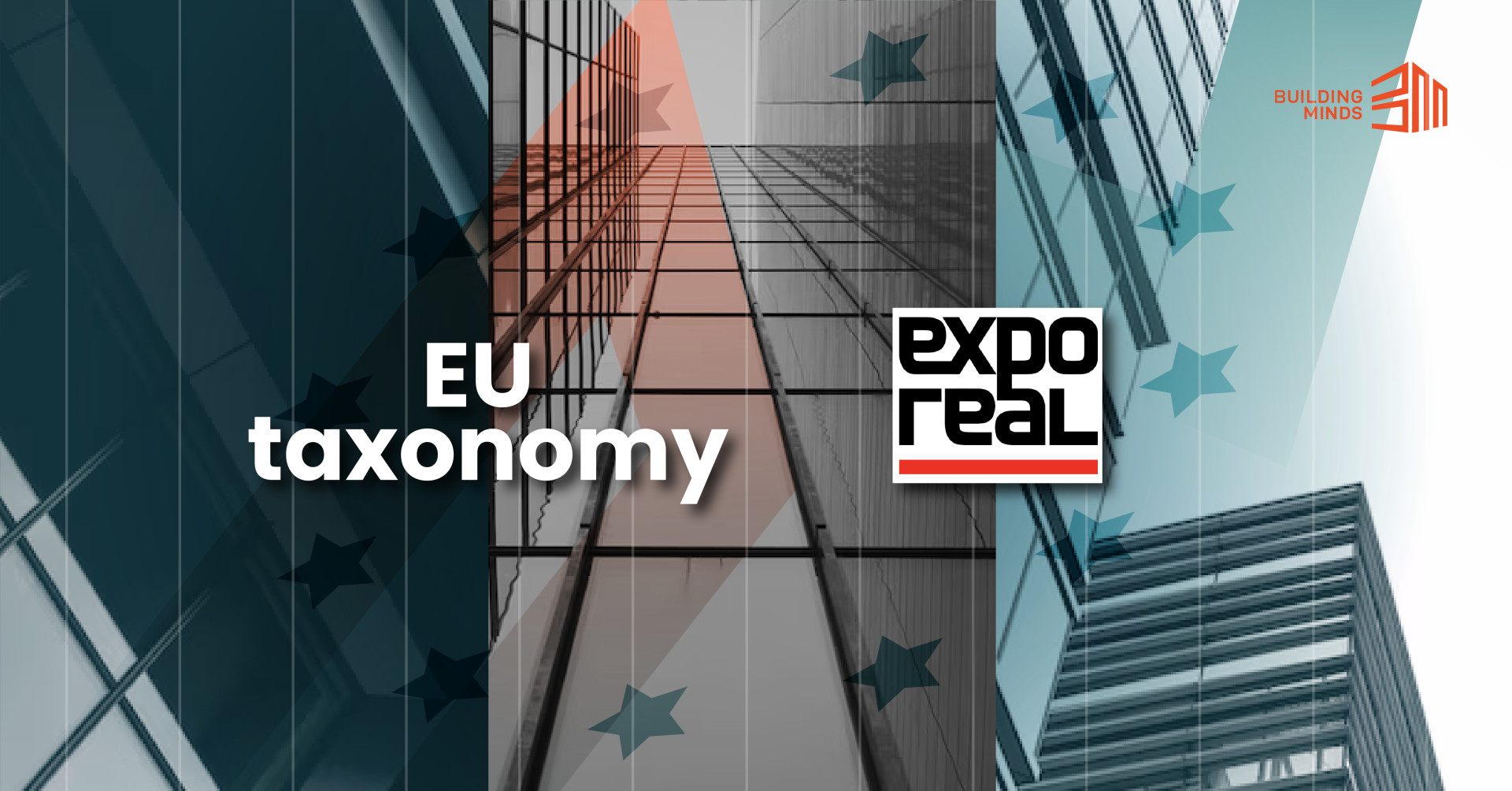Run up to EXPO REAL 2023: EU Taxonomy-Compliant Real Estate

EU Taxonomy Reporting: Who Needs to Report?
Reporting Obligations:
Companies falling under the scope of the Corporate Sustainability Reporting Directive(CSRD) are legally required to include specific information in their annual reports. This information should detail the extent to which their activities align with the EU Taxonomy (referred to as Taxonomy-eligibility) and the degree to which they meet the criteria established in the Taxonomy delegated acts (known as Taxonomy-alignment).
Voluntary Reporting:
On the other hand, companies that do not fall within the scope of CSRD are not legally obligated to report. Instead, they have the option to voluntarily disclose this information with the potential of gaining access to favorable financing terms. In essence, voluntary reporting allows companies outside the CSRD's jurisdiction to showcase their commitment to sustainability and tap into potential business opportunities.
Submission Deadline: January 2024
Highlighting the Key Articles in EU Taxonomy (Articles 7.1- 7.7):
The key articles within the EU Taxonomy outline various aspects of sustainable practices related to buildings and energy efficiency. The main activities in scope are:
Article 7.1: Construction of new buildings
Article 7.2: Renovation of existing buildings
Article 7.3: Installation, maintenance, and repair of energy efficiency equipment
Article 7.4: Installation, maintenance, and repair of charging stations for electric vehicles in buildings (including parking spaces attached to buildings)
Article 7.5: Installation, maintenance, and repair of instruments and devices for measuring, regulating, and controlling energy performance in buildings
Article 7.6: Installation, maintenance, and repair of renewable energy technologies
Article 7.7: Acquisition and ownership of buildings
Users of the BuildingMinds platform can choose the activity they want to report on based on their portfolio needs and current building uses. Required reporting by asset managers falls under the main activities. Acquisition and Ownership is the main activity that is usually selected to report on. Each activity has a Climate Mitigation and a Climate Adaptation objective. Businesses wishing to prove that their buildings are aligned with the EU taxonomy through one of these objectives need to comply with the technical screening criteria (Substantial contribution and Do no significant harm). If a building does not meet the technical screening criteria of either Climate Adaptation or Mitigation, then it is not aligned with the regulation.
In addition to aligning with environmental objectives, businesses are also expected to comply with the Minimum Safeguards laid out in the EU Taxonomy regulation. This is a set of criteria ensuring that companies meet specific standards in human and labor rights, anti-bribery, taxation, and fair competition. Their purpose is to prevent investments that would violate these standards, thereby disqualifying them from being labeled as "Taxonomy-aligned."
Implications and impact:
Today, 70% of global real estate assets are already considered stranded and many of these are quickly losing value. This is where the EU Taxonomy plays a critical role for asset holders. By providing a systematic framework to evaluate and optimize the environmental sustainability of their holdings and operations, investors safeguard their assets from depreciation or government penalties.
First and foremost, the EU Taxonomy aims to reduce carbon emissions and preserve resources. By enforcing reporting and adhesion to top standards, the framework helps build future-proof real estate portfolios in a complex and evolving landscape of regulation.
Non-compliance with the EU Taxonomy can mean a loss of 20% of a building’s value today. Other factors driving the depreciation include:
Reputational damage
Restricted access to financing Restricted access to financing
Exclusion from sustainable investments Exclusion from sustainable investments
Regulatory sanctions Regulatory sanctions
Increased maintenance costs Increased maintenance costs
Supply chain pressures Supply chain pressures
Legal liabilities
On the other hand, adhering to these top standards has resulted in some of the most vibrant projects in Europe. Vienna's Square One is a multifunctional office building brought to life by Austrian construction powerhouse Strabag. This structure’ certification confirms a pioneering role as a modern office building high investment security.
Considering 40% of global energy consumption comes from buildings and construction, following regulation and driving resource consumption to top efficiency is essential for real estate owners. BuildingMinds is dedicated to enabling stakeholders across the real estate ecosystem achieve EU Taxonomy compliance. We provide a streamlined digital solution that ensures proper and timely reporting and monitoring of your portfolio performance through retrofit planning, identifying cost-effective measures and protecting your assets’ value.
EXPO REAL 2023: Demonstrating our vision for a Taxonomy-compliant real estate
Harnessing technology to bridge the gap between regulation and reality, BuildingMinds’ enables real estate professionals to navigate the complexities of the Taxonomy. Our solution helps with data management, performance optimization, resource consumption and emissions analytics, reporting, carbon risk and cost prediction, as well as retrofit planning and impact simulation.
Stay Connected: The Journey Continues
At EXPO REAL 2023, BuildingMinds is rolling out a timesaving and audit-enabling solution for achieving real estate sustainability. Discover the power of our platform with personalized guidance from our top-notch sales experts. If you want to learn more about EU taxonomy, feel free to check our other blog: “Here's what you should know about EU Taxonomy.”



